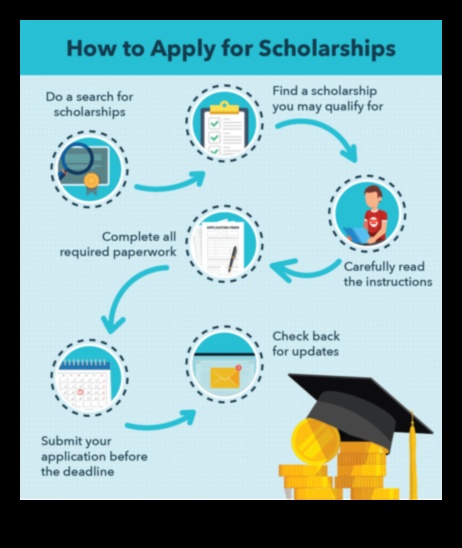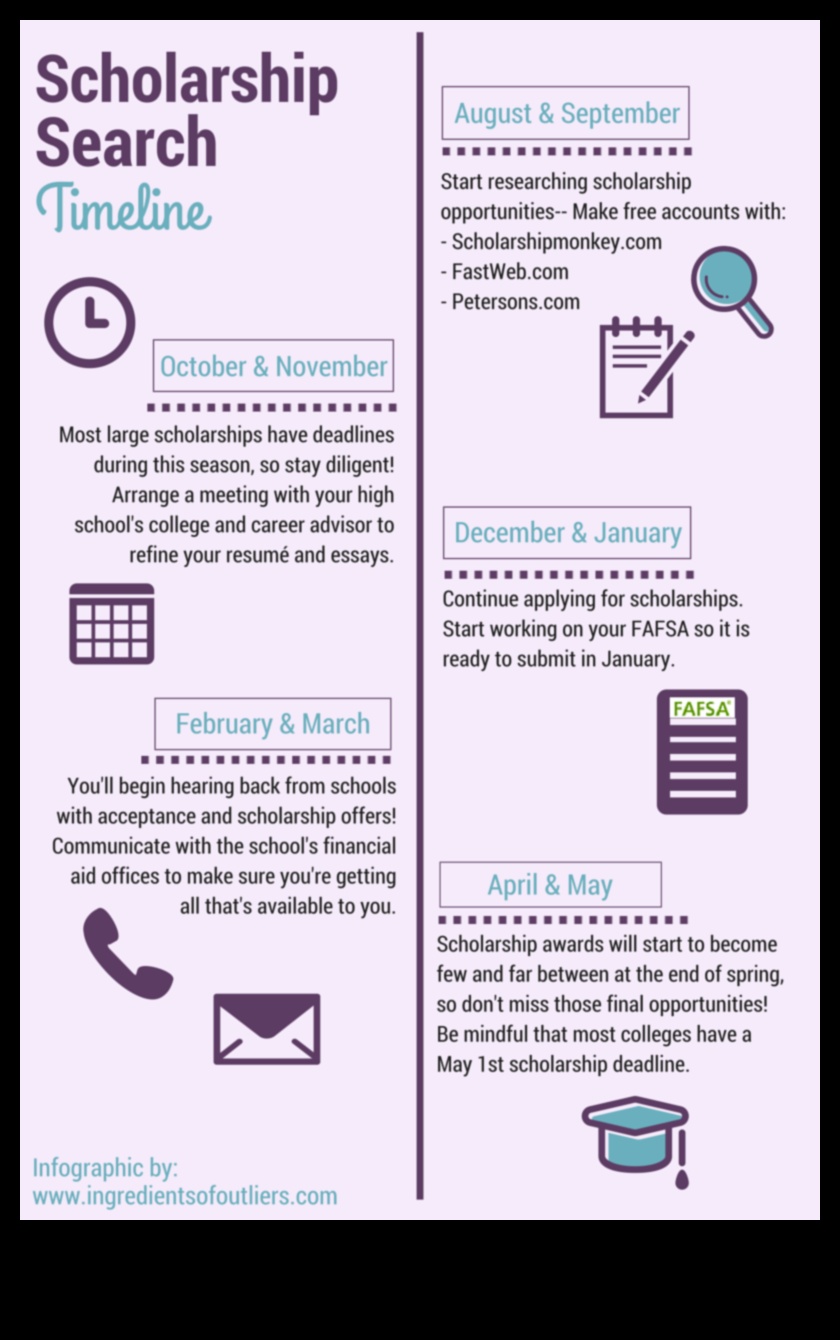
What are Scholarships?
Scholarships are financial awards that are given to students to help them pay for their education. They are awarded based on a variety of factors, such as academic merit, financial need, and extracurricular activities.
Scholarships can be a great way to reduce the cost of college or university. They can also help students to attend a school that they might not otherwise be able to afford.
There are many different types of scholarships available, so it is important to do your research and find scholarships that you are eligible for. You can find scholarships by searching online, through your school’s financial aid office, or by asking your teachers or guidance counselor.
Applying for scholarships can be a time-consuming process, but it is well worth it if you are able to secure a scholarship award. Scholarships can help you to reach your educational goals and achieve your dreams.
| Feature | Description |
|---|---|
| Scholarship | A monetary award given to a student to help pay for their education. |
| Financial aid | Assistance given to students to help pay for their education, such as grants, loans, and work-study programs. |
| Grants | Financial aid that does not have to be repaid. |
| Financial assistance | Any type of help given to students to help pay for their education. |
| College funding | The money that is needed to pay for college tuition, fees, and other expenses. |

II. Types of Scholarships
There are many different types of scholarships available, each with its own set of criteria. Some of the most common types of scholarships include:
- Academic scholarships
- Athletic scholarships
- Art scholarships
- Music scholarships
- Leadership scholarships
- Service scholarships
- Merit scholarships
- Need-based scholarships
It is important to research the different types of scholarships available before you start applying for them. This will help you to identify the scholarships that you are eligible for and that are the best fit for your interests and goals.
You can find information about different types of scholarships on scholarship websites, in college catalogs, and in local newspapers. You can also ask your guidance counselor or teachers for help finding scholarships that you might be eligible for.
III. Eligibility Requirements
Scholarship eligibility requirements vary depending on the scholarship, but some common requirements include:
- Academic achievement
- Financial need
- Community service
- Ethnicity
- Gender
- Major
- Institution of higher education
- Other factors
It is important to read the eligibility requirements carefully before applying for a scholarship to make sure you meet all of the criteria.

IV. How to Apply for Scholarships
The application process for scholarships varies depending on the scholarship provider. However, there are some general steps that you can follow to apply for most scholarships.
1. Identify scholarships that you are eligible for. There are many different scholarships available, so it is important to do your research and find scholarships that you are eligible for. You can find scholarships by searching online, asking your teachers or guidance counselor, or contacting organizations that you are involved with.
2. Read the scholarship criteria carefully. Before you apply for a scholarship, make sure that you read the criteria carefully to make sure that you meet all of the requirements. Some scholarships may have specific requirements, such as a minimum GPA or a certain number of extracurricular activities.
3. Write a strong scholarship essay. Many scholarships require you to submit an essay as part of your application. This is your chance to show the scholarship provider why you are a good candidate for the scholarship. Make sure that your essay is well-written and that it highlights your strengths and accomplishments.
4. Submit your application on time. Most scholarships have a deadline, so it is important to submit your application on time. Be sure to check the scholarship website for the deadline and make sure that you submit your application well in advance.
5. Follow up with the scholarship provider. After you have submitted your application, it is a good idea to follow up with the scholarship provider to let them know that you are interested in the scholarship. You can do this by sending a thank-you note or by calling the scholarship provider to ask about the status of your application.
Applying for scholarships can be a time-consuming process, but it is worth it if you are able to secure a scholarship that can help you pay for your education. By following these steps, you can increase your chances of being awarded a scholarship.

V. Scholarship Search Engines
There are a number of scholarship search engines available online that can help you find scholarships that you may be eligible for. Some of the most popular scholarship search engines include:
These scholarship search engines can be a great way to find scholarships that you may not be aware of. However, it is important to remember that not all scholarships listed on these search engines are legitimate. Be sure to do your research before applying for any scholarship to make sure that it is legitimate and that you meet the eligibility requirements.
VI. Scholarship Application Tips
The scholarship application process can be daunting, but there are a few things you can do to make it easier.
- Start early. The sooner you start your application, the more time you will have to research scholarships, gather materials, and write your essays.
- Be organized. Keep track of all of your scholarships in one place, and make sure to have all of your materials ready to go when the application deadline approaches.
- Write strong essays. Scholarship essays are your chance to show the scholarship committee who you are and why you deserve the scholarship. Take your time writing your essays, and make sure they are well-written and error-free.
- Proofread your work. Before you submit your application, proofread your essays and make sure there are no errors. A single typo or grammatical error could cost you the scholarship.
- Be yourself. The scholarship committee wants to get to know the real you, so don’t try to be someone you’re not. Let your personality shine through in your essays and other application materials.
By following these tips, you can increase your chances of winning a scholarship.
VII. Scholarship Essay Tips
Scholarship essays are an important part of the application process for many scholarships. They give you a chance to show the scholarship committee who you are and why you deserve their money. In this section, we’ll provide you with some tips on writing a great scholarship essay.
1. Start early. The best time to start writing your scholarship essay is as soon as you know about the opportunity. This will give you plenty of time to brainstorm ideas, research your topic, and get feedback from others.
2. Choose a topic that you’re passionate about. Your essay will be more engaging if you write about something that you care about. When you’re passionate about a topic, it will come through in your writing and make you a more interesting candidate for the scholarship.
3. Do your research. Before you start writing, make sure you do your research on the scholarship and the organization that’s offering it. This will help you understand what they’re looking for in a candidate and how to tailor your essay to their specific needs.
4. Write a strong introduction. Your introduction is your chance to grab the reader’s attention and make them want to read more. Start with a hook, such as a personal anecdote or a thought-provoking question.
5. Develop your argument. The body of your essay should develop your argument in a clear and concise way. Use evidence to support your claims and make sure your writing is organized and easy to follow.
6. Write a strong conclusion. Your conclusion should wrap up your argument and leave the reader with a lasting impression. Restate your thesis statement and use a call to action to encourage the reader to take action.
7. Proofread your essay. Before you submit your essay, proofread it carefully for errors in grammar, spelling, and punctuation. A well-written essay will make you look more professional and increase your chances of winning the scholarship.
Following these tips will help you write a great scholarship essay that will impress the scholarship committee and increase your chances of winning.
Scholarship Interview Tips
Scholarship interviews are a great opportunity to show the scholarship committee that you are a qualified and deserving candidate. Here are some tips for acing your scholarship interview:
- Do your research on the scholarship and the organization that is offering it. This will show that you are genuinely interested in the scholarship and that you have taken the time to learn about it.
- Dress professionally and arrive on time for your interview. First impressions matter, so make sure you put your best foot forward.
- Be yourself and be confident. The scholarship committee wants to get to know the real you, so don’t try to be someone you’re not.
- Be prepared to answer questions about your academic and extracurricular achievements. The scholarship committee wants to know what you have to offer and why you are a good fit for the scholarship.
- Be prepared to answer questions about your goals and aspirations. The scholarship committee wants to know what you plan to do with the scholarship money and how it will help you achieve your goals.
- Be grateful for the opportunity to interview for the scholarship. Thank the scholarship committee for their time and consideration.
By following these tips, you can increase your chances of being awarded a scholarship. Good luck!
IX. Scholarship Timelines
Scholarship deadlines vary, so it’s important to research each scholarship you’re interested in and make sure you submit your application on time. Some scholarships have rolling deadlines, which means you can submit your application at any time during the year. Other scholarships have specific deadlines, which you must meet in order to be considered.
When you’re looking for scholarships, it’s helpful to create a spreadsheet or calendar to keep track of all the deadlines. This will help you make sure you don’t miss any important deadlines.
Here are some tips for staying on top of scholarship deadlines:
- Create a spreadsheet or calendar to keep track of all the deadlines.
- Set reminders for yourself so you don’t forget about important deadlines.
- Check the websites of scholarship organizations regularly for updates on deadlines.
- Be flexible with your deadlines. If you can’t meet a deadline, don’t give up. There are many other scholarships available.
By following these tips, you can increase your chances of winning scholarships and receiving financial assistance for college.
X. FAQ
Q: What is a scholarship?
A: A scholarship is a financial award given to students to help them pay for their education. Scholarships are often awarded based on academic merit, financial need, or a combination of both.
Q: How do I apply for a scholarship?
A: The first step is to find scholarships that you are eligible for. You can do this by searching online scholarship databases, asking your teachers or counselors, or checking with your college or university financial aid office. Once you have found a few scholarships that you are interested in, you will need to complete the application process. This typically involves submitting your academic transcript, a personal statement, and letters of recommendation.
Q: What are the benefits of receiving a scholarship?
A: There are many benefits to receiving a scholarship. Scholarships can help you pay for your tuition, books, and other expenses. They can also help you improve your academic standing and give you the opportunity to pursue your educational goals.